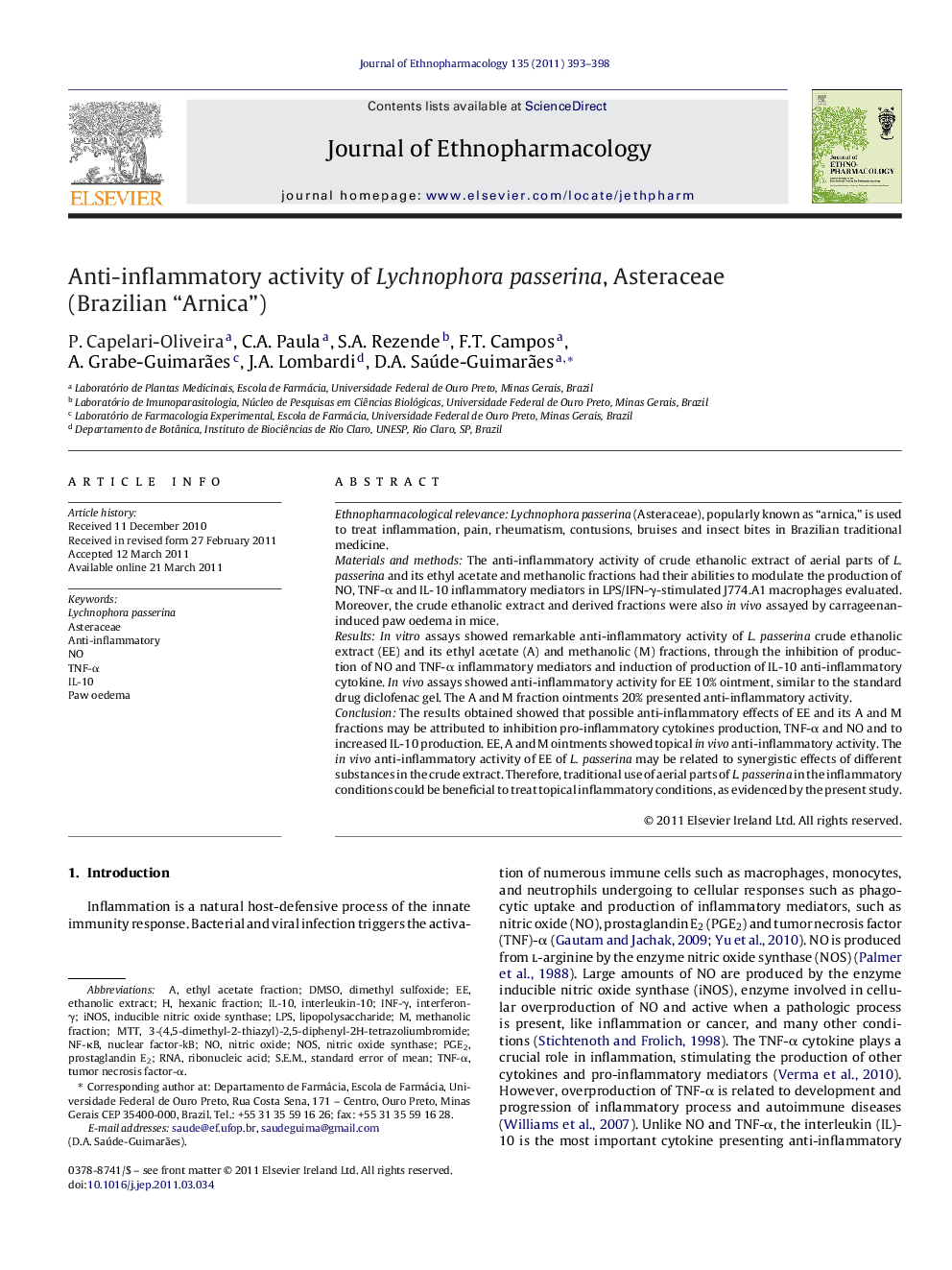| Article ID | Journal | Published Year | Pages | File Type |
|---|---|---|---|---|
| 5839749 | Journal of Ethnopharmacology | 2011 | 6 Pages |
Abstract
Ethnopharmacological relevanceLychnophora passerina (Asteraceae), popularly known as “arnica,” is used to treat inflammation, pain, rheumatism, contusions, bruises and insect bites in Brazilian traditional medicine.Materials and methodsThe anti-inflammatory activity of crude ethanolic extract of aerial parts of L. passerina and its ethyl acetate and methanolic fractions had their abilities to modulate the production of NO, TNF-α and IL-10 inflammatory mediators in LPS/IFN-γ-stimulated J774.A1 macrophages evaluated. Moreover, the crude ethanolic extract and derived fractions were also in vivo assayed by carrageenan-induced paw oedema in mice.ResultsIn vitro assays showed remarkable anti-inflammatory activity of L. passerina crude ethanolic extract (EE) and its ethyl acetate (A) and methanolic (M) fractions, through the inhibition of production of NO and TNF-α inflammatory mediators and induction of production of IL-10 anti-inflammatory cytokine. In vivo assays showed anti-inflammatory activity for EE 10% ointment, similar to the standard drug diclofenac gel. The A and M fraction ointments 20% presented anti-inflammatory activity.ConclusionThe results obtained showed that possible anti-inflammatory effects of EE and its A and M fractions may be attributed to inhibition pro-inflammatory cytokines production, TNF-α and NO and to increased IL-10 production. EE, A and M ointments showed topical in vivo anti-inflammatory activity. The in vivo anti-inflammatory activity of EE of L. passerina may be related to synergistic effects of different substances in the crude extract. Therefore, traditional use of aerial parts of L. passerina in the inflammatory conditions could be beneficial to treat topical inflammatory conditions, as evidenced by the present study.
Keywords
Related Topics
Health Sciences
Pharmacology, Toxicology and Pharmaceutical Science
Pharmacology
Authors
P. Capelari-Oliveira, C.A. Paula, S.A. Rezende, F.T. Campos, A. Grabe-Guimarães, J.A. Lombardi, D.A. Saúde-Guimarães,
